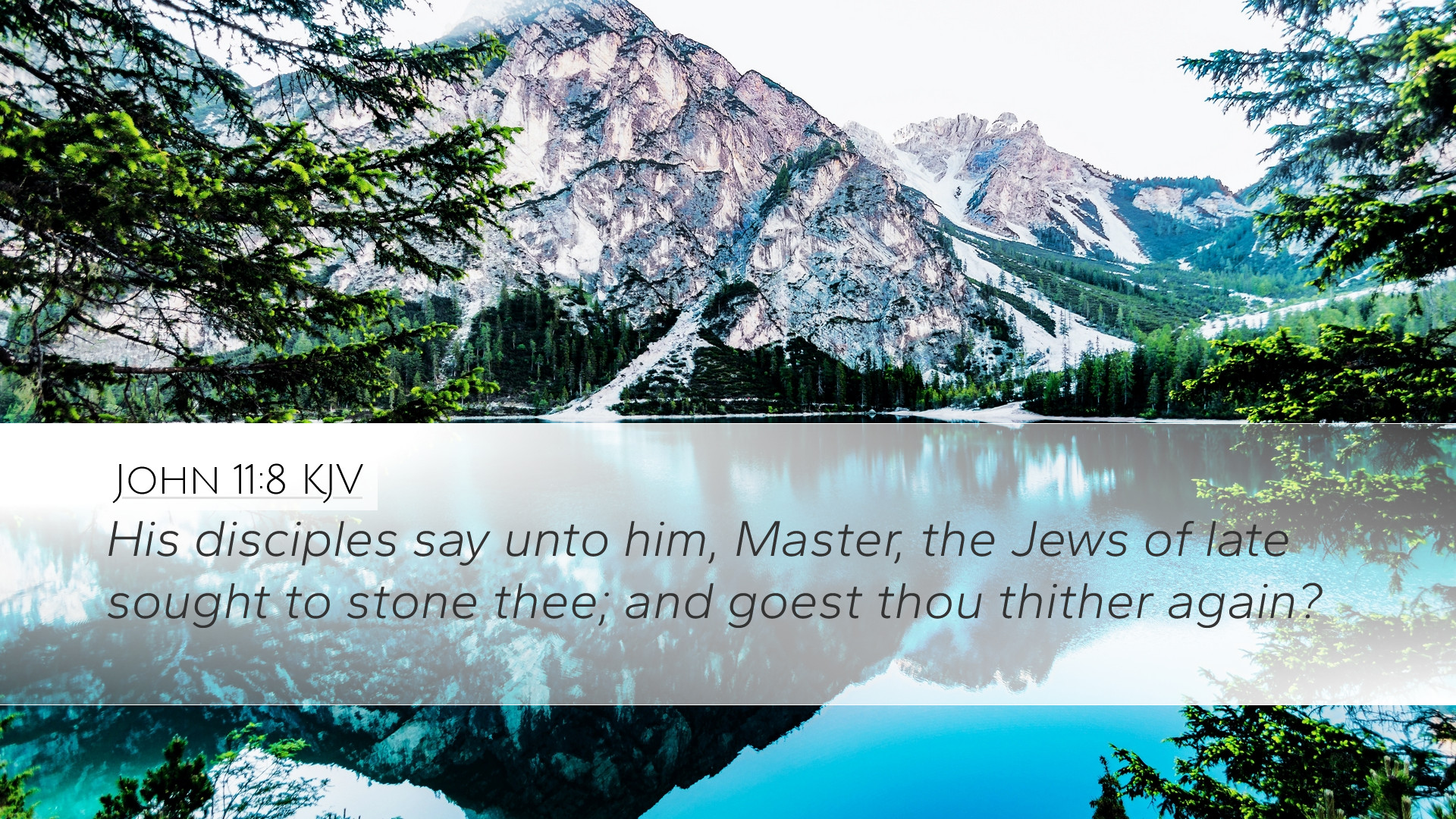Commentary on John 11:8
Verse: John 11:8 - "The disciples said to Him, 'Rabbi, lately the Jews sought to stone You, and are You going there again?'"
Introduction
This verse occurs within a crucial narrative, as it leads to the resurrection of Lazarus. The disciples’ response illustrates their fear and concern for Jesus' safety, reflecting on past events. This verse sets the stage for a deeper understanding of faith and the cost of discipleship.
Contextual Analysis
The disciples had recently witnessed hostility directed towards Jesus by the Jewish authorities. Their hesitation to enter Judea reveals the tension between Jesus' mission and the dangers that accompany it. This moment is critical for understanding how faith interacts with fear in the lives of Christ's followers.
Insights from Matthew Henry
Matthew Henry emphasizes the disciples' fears are rooted in their protective instincts. They recognize the hostility towards Jesus, indicating a lack of understanding of His divine mission. Henry notes, “They could not see that His time, even in danger, was always in His Father's hand.” This highlights the necessity of faith and trust in God’s plan, even amidst peril.
Insights from Albert Barnes
Albert Barnes provides a thorough examination of the disciples' concern. He explains that their question reflects not only their fear for Jesus but a misunderstanding of His purpose. Barnes elaborates, "They did not comprehend that danger was not always an indication of duty." He invites readers to consider how often believers let fear inhibit their obedience to Christ’s calling.
Insights from Adam Clarke
Adam Clarke presents the disciples' answer as emblematic of human reasoning. He comments on their perspective, stating, “They reasoned from their fears, not from faith.” Clarke further illustrates that fear can blind individuals to the reality of divine intention, which contrasts with the perception of worldly safety. This analysis encourages a reflection on how fear influences decision-making in ministry.
Theological Implications
The verse reveals significant theological truths regarding the nature of discipleship. It invites believers to confront their fears and consider the implications of following Christ into dangerous situations.
- The Nature of Faith: True faith often requires stepping into uncertainty and danger.
- Understanding of God’s Sovereignty: Acknowledging that God’s plans supersede human understanding and fear.
- Discipleship and Cost: Reflecting on the personal cost associated with following Jesus, especially in the face of opposition.
Applications for Ministry
This discourse calls pastors and ministry leaders to engage with the realities of fear and faith in their congregations. It challenges them to cultivate a culture where faith prevails over fear.
- Encourage Open Dialogue: Create spaces for discussing fears and doubts in faith.
- Model Courage: Leaders should exemplify boldness in their ministry, reflecting Christ’s example.
- Educational Focus: Teach congregants about the cost of discipleship and the call to trust in God amidst fears.
Conclusion
John 11:8 serves as a poignant reminder of the struggles faced in the journey of faith. Through the lens of historical commentary, we glean valuable insights into the balance of fear and faith. Pastors, theologians, and scholars are called to reflect deeply on the implications of this verse in their teaching and practice, urging believers to embrace a faith that transcends fear.


